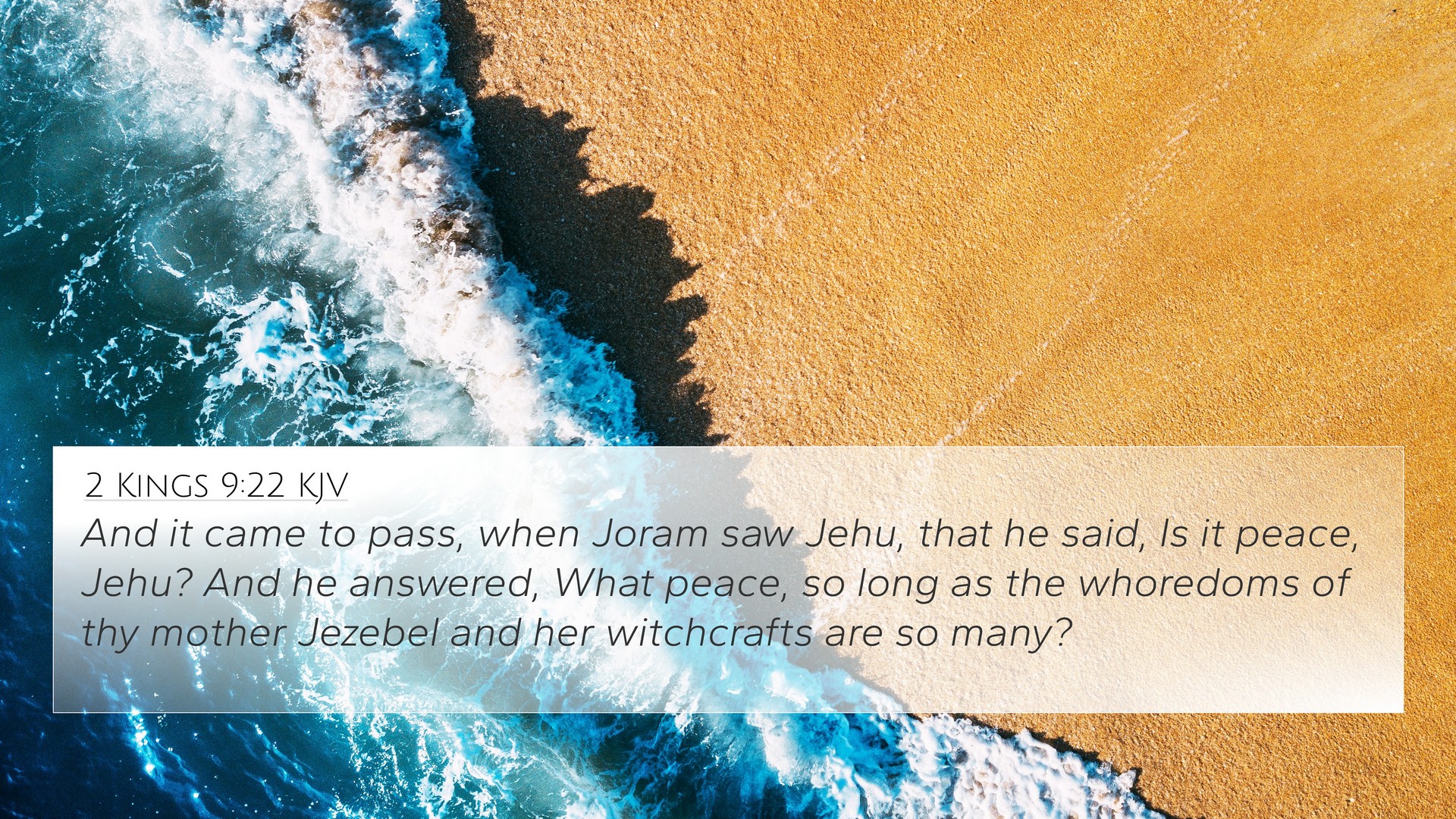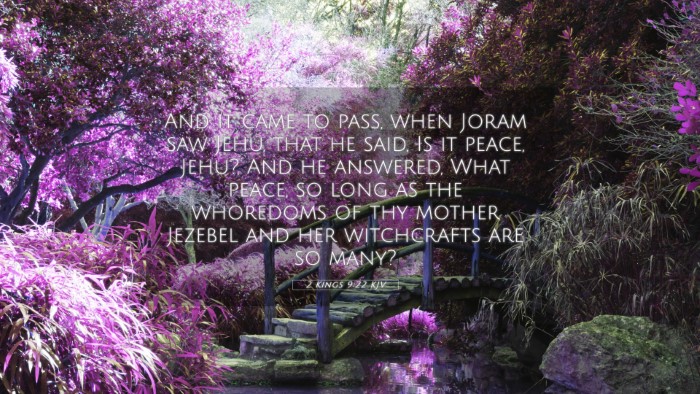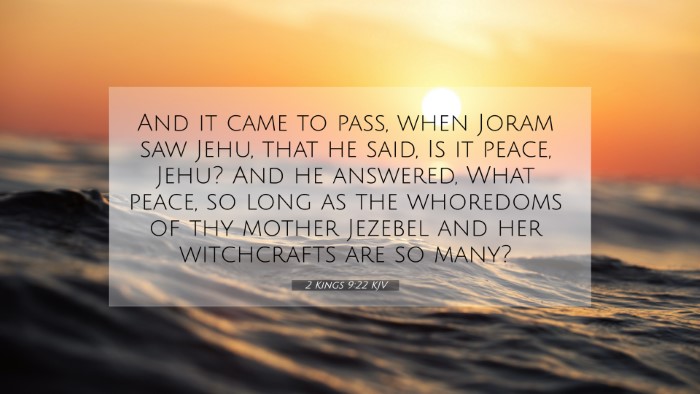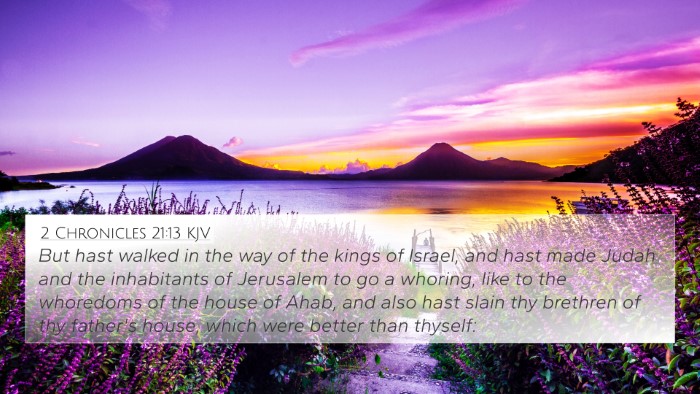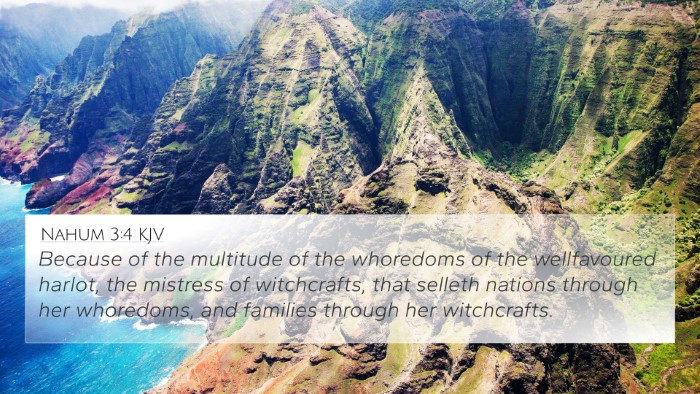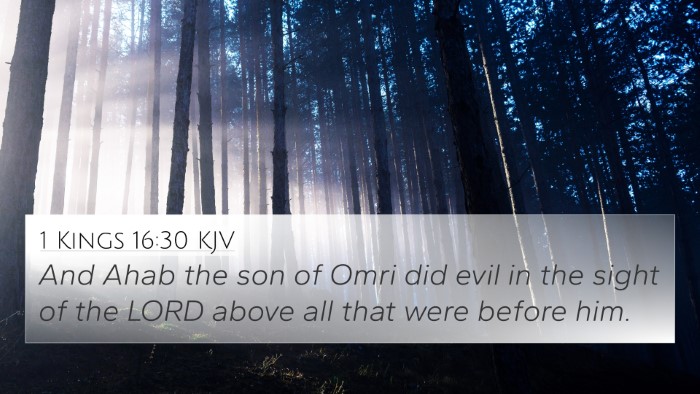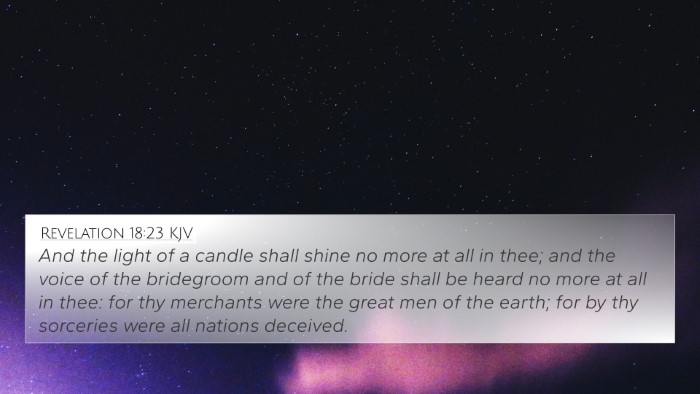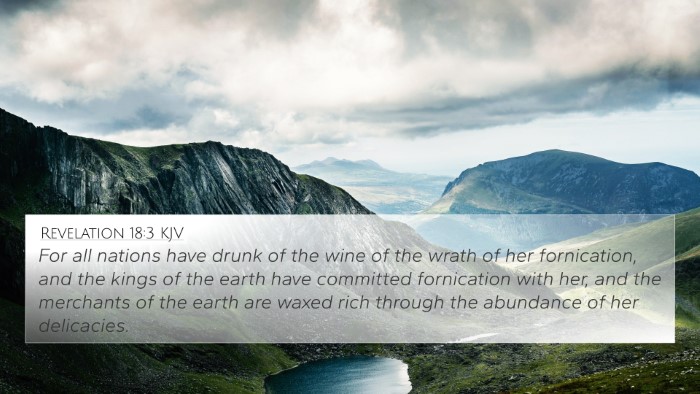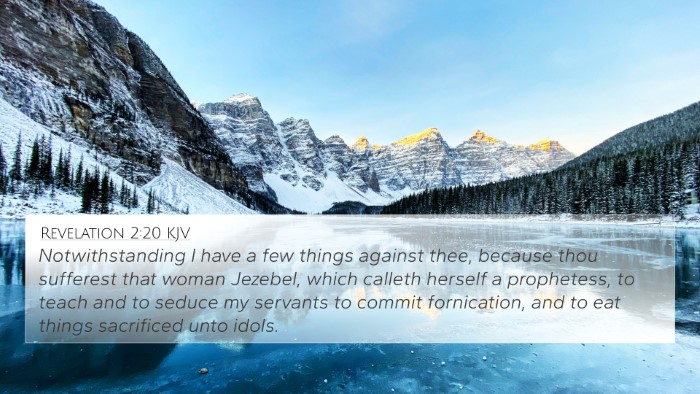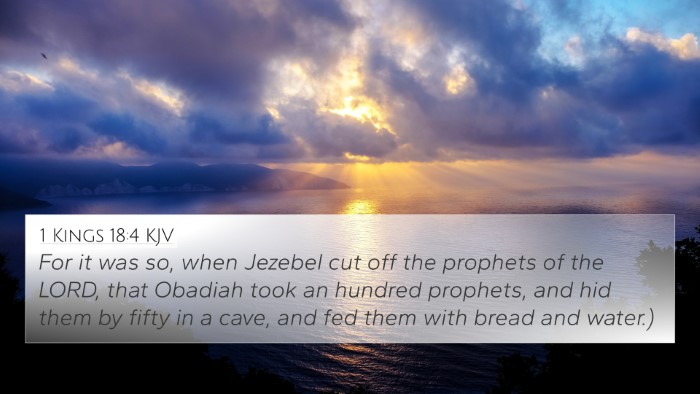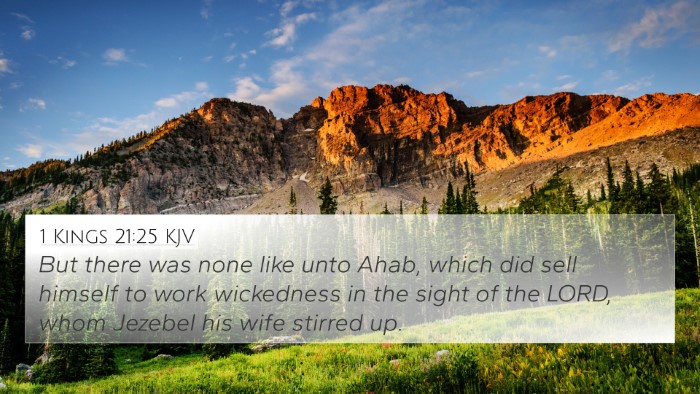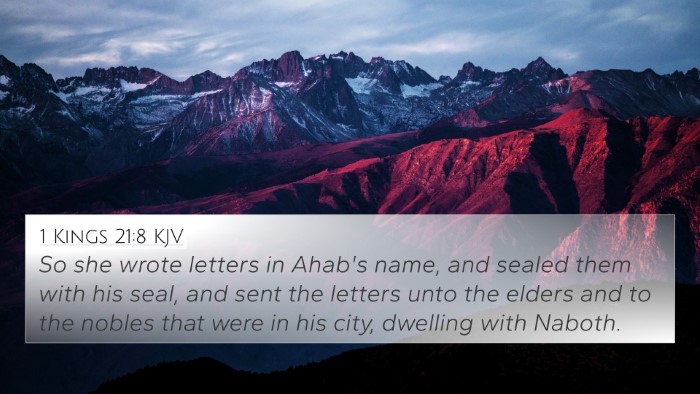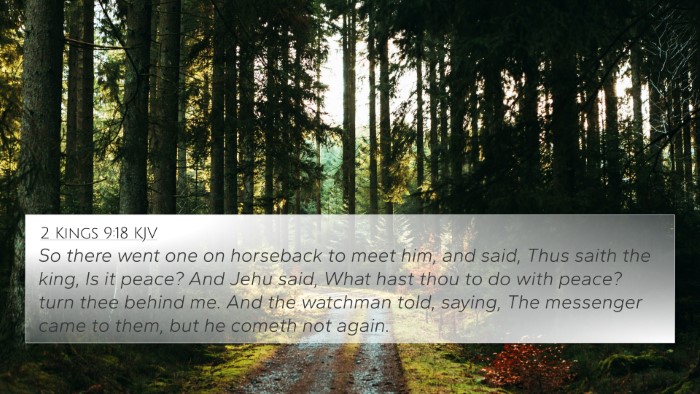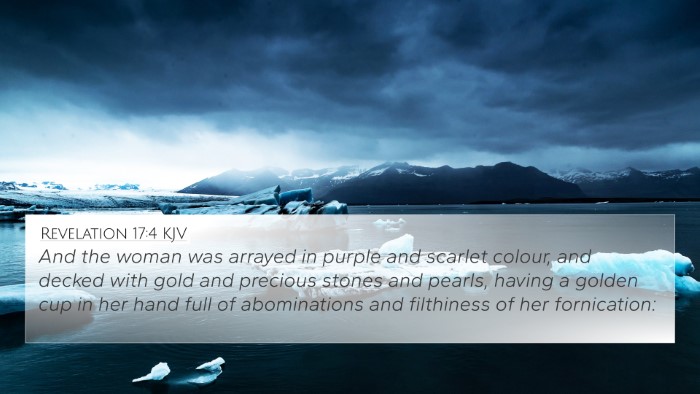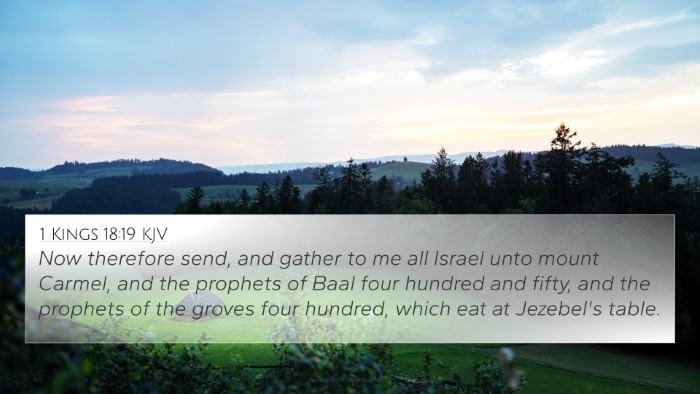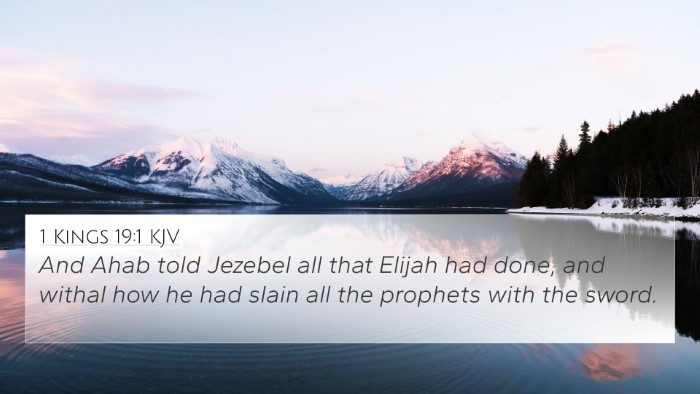Understanding 2 Kings 9:22
The verse 2 Kings 9:22 states: "When Jehoram saw Jehu, he said, Is it peace, Jehu? And he answered, What peace, so long as the whoredoms of thy mother Jezebel and her witchcrafts are so many?" This verse captures a pivotal moment in Israel's history, symbolizing the confrontation between Jehu, the newly appointed king, and Jehoram, the reigning monarch. The text serves as a dramatic revelation of the moral and spiritual decay that had taken root in Israel, particularly through the influence of Jezebel.
Key Themes and Interpretations
- Judgment and Accountability: Jehu's declaration signifies the impending judgment against the sinful practices endorsed by Jezebel. Matthew Henry emphasizes that Jehu's rise is not just political but also a divine ordinance to restore purity in Israel.
- Symbol of Conflict: The exchange between Jehoram and Jehu illustrates the deep-seated conflict within Israel. Albert Barnes notes that the question of 'peace' is starkly contrasted with Jehu's condemnation of Jezebel's actions. This represents a division between righteousness and wickedness.
- Witchcraft and Idolatry: The mention of 'whoredoms' and 'witchcrafts' indicates the extent of Israel's apostasy, aligning with Adam Clarke's commentary that these practices had led the nation away from God. This connection highlights the danger of blending cultures and religions.
Cross-Referencing Related Bible Verses
Exploring this verse allows for a tapestry of scriptural cross-referencing, unveiling connections between various Biblical narratives and themes. Here are applicable cross-references:
- 1 Kings 16:31-33: This passage discusses Jezebel's influence and introduces her as a key figure in leading Israel astray.
- 2 Kings 9:7: Jehu is commanded to destroy the house of Ahab, indicating God's judgment against Ahab's lineage.
- Revelation 2:20: Jezebel is referenced in the New Testament, illustrating her influence persists through the ages.
- Isaiah 47:9: The consequences of witchcraft are foretold, echoing the warnings present in 2 Kings.
- Jeremiah 29:8: Warns against false prophets and divination, paralleling the warnings against Jezebel's practices.
- Galatians 5:20-21: Lists witchcraft among evident works of the flesh, directly linking to the behaviors condemned in 2 Kings.
- 1 Timothy 4:1: Discusses departing from faith to follow deceitful spirits and doctrines of demons, resonating with Israel’s idolatry.
- James 4:4: Identifies friendship with the world as enmity with God, similar to the idolatrous practices of Jezebel.
- Hosea 4:14: Condemns the actions of the people of Israel that parallel the whoredoms mentioned by Jehu.
Thematic Connections
2 Kings 9:22 serves as a thematic conduit linking numerous biblical ideas about sin, judgment, and divine restoration. It marks a significant moment regarding God's disdain for idolatry and the ensuing repercussions:
- Conflict of Loyalties: This confrontation represents a broader biblical theme of conflict between adherence to God and succumbing to societal pressures.
- Leadership and Influence: The dynamics of kingship seen here reflect the vital role of leaders in guiding their people spiritually.
- Judgment and Redemption: This verse foreshadows the redemptive actions that God will undertake to cleanse Israel of its evils.
Conclusion
In summary, 2 Kings 9:22 encapsulates a moment where Jehu's mission is validated by direct confrontation with Jehoram, questioning the peace that can exist amidst widespread wickedness. The implications of this interaction transcend time, offering profound truths about accountability, the perils of idolatry, and the necessity for divine judgment. By examining cross-references and connections between Bible verses, one gains a deeper insight into the narrative and its themes, enriching one's understanding of Scripture.
